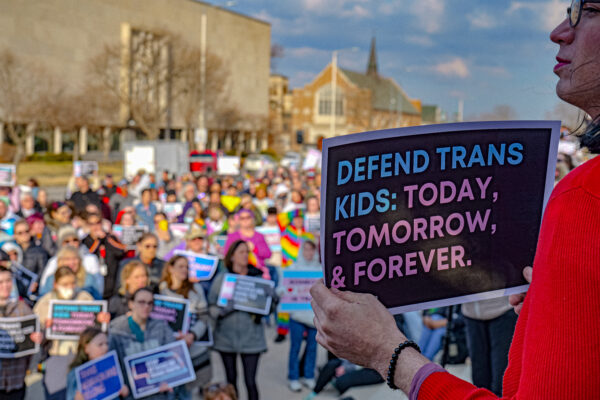Back to school is quickly approaching! While getting to see friends and picking out your classes may be something you are looking forward to, going back to school can be stressful if you do not go by your legal name or go by different pronouns. While the law is not settled on the issue, the ACLU of Nebraska firmly believes students have the right to go by their chosen name and pronouns in school. Every school and teacher handles student’s names a little differently but hopefully the information below provides some guidance to ensure your school is a safe and educational place for you!
Students have the right to go by the name and pronouns they use. Students do not have to legally change their name or gender marker. Your school should use your chosen name and pronouns on everything possible—your student ID, class attendance rosters, yearbook, and more. Your legal name should only appear on your official file. If teachers or administers refuse to call a student by their chosen name or pronouns, they may be violating the law. There is no law that requires schools to use a student’s legal name.
Students are protected from discrimination based on sex under Title IX of the Civil Rights Act.[1] The Supreme Court has held that discrimination based on gender identity or sexual orientation is sex-based discrimination.[2] Schools that are funded by the government are not allowed to discriminate on the basis of sex. This includes all public K-12 institutions, public colleges and universities, and most private colleges that accept federal financial aid.
Some schools have affirmatively implemented policies for addressing students by their chosen name and pronouns. GLSEN and the National Center for Transgender Equality have released a model policy that provides insight if your school is considering adopting a policy.[3] These policies provide guidance and ensure students are respected but students still have to make sure the policies are being followed.
Teachers have sought exceptions to these policies that would allow them to refer to students by their legal name instead of their chosen name. Courts have held that such exceptions could potentially subject a school “to a Title IX discrimination [suit] brought by a transgender student”[4] and have denied a teacher’s request to stop the implementation of a preferred name and pronoun policy.[5]
Schools also have an obligation to protect all students from harassment and bullying, including from other students. However, schools are only obligated to protect students from harassment they know about. That’s why it’s important to report harassment each and every time it happens to a trusted administrator, counselor, or other school official.
We want back to school to be a time of excitement for all students. If you have more questions or if you think your school is not complying with the law, please contact us at gethelp@aclunebraska.org.
[1] 20 U.S.C. § 1681.
[2] Bostock v. Clayton Cnty., 140 S. Ct. 1731.
[3] https://www.glsen.org/sites/default/files/2020-11/Model-Local-Education-Agency-Policy-on-Transgender-Nonbinary-Students.pdf.
[4] Kluge v. Brownsburg Cmty. Sch. Corp., 548 F.Supp.3d 814 (S.D. Ind. 2021).
[5] Ricard v. USD 475 Geary Cnty., KS Sch. Bd., 2022 WL 1471372 (D. Kansas 2022)


